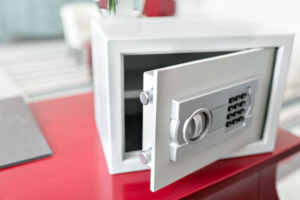 At the beginning of COVID, many people who lost loved ones found themselves scrambling to figure out how to handle legal and financial issues. This was particularly true if the individual who passed away was the person who handled finances for the family. Unfortunately, such problems are very common irrespective of COVID. The best way to avoid this situation in your own family is to create a ‘just-in-case’ box that contains essential information your loved ones will need if you die or become incapacitated.
At the beginning of COVID, many people who lost loved ones found themselves scrambling to figure out how to handle legal and financial issues. This was particularly true if the individual who passed away was the person who handled finances for the family. Unfortunately, such problems are very common irrespective of COVID. The best way to avoid this situation in your own family is to create a ‘just-in-case’ box that contains essential information your loved ones will need if you die or become incapacitated.
What should be in your just-in-case box? The contents will vary but typically it should include information on the following:
- Financial assets. You should list all financial accounts (bank, brokerage, retirement, etc.), including the institution holding them and account numbers. In addition, identify any other real estate or personal property you have and where to find them.
- Digital assets and accounts. Identify any online accounts, software, and digital content you own (e.g., music, photos, games, eBooks, websites, intellectual property, etc.).
- Advisers. Write down the name and contact information for your lawyer, accountant, financial planner, insurance broker, and any other parties you use.
- Estate planning documents. Let your loved ones know where to find your will, trust, healthcare proxy, living will, and power of attorney.
- Insurance policies. You should list all life insurance, disability, long-term care, homeowners’, or other relevant insurance policies with contact information for the company and broker. Also, indicate where to find copies of the actual policies.
- Key contacts. Indicate anyone who should be contacted about your death or incapacity, such as your employer, vendors, customers, friends, family members, etc.
- Bills. You should have a list of what bills are paid regularly (by mail or automatically).
- Credit cards. List your cards, account numbers, and customer service numbers.
- Other important papers. Detail the location of your house deed, title to vehicles, mortgage and loan documents, passports, social security cards, birth and marriage certificates, tax returns, and other documents.
- Passwords. Provide a list of all passwords. This should include email and social media accounts, cell phones, and other accounts.
This isn’t a complete list. Depending on your situation, you may have other items of importance, especially if you own a business.
Once you’ve compiled this information, what should you do with it? You don’t have to put it in an actual box, although if you have a safe in your house, you may want to put a copy there. You should have the information digitally and tell several loved ones where to find it. Make sure you have backup copies in case your computer isn’t accessible. A loved one may also want to have a print copy. Some people like to have a piece of paper that they can easily pull out of a filing cabinet rather than search online for the document.
If you feel overwhelmed at putting together a just-in-case box for yourself or a loved one, a daily money manager can help. We provide this service to our clients and their families so they are as prepared as possible in a crisis. Your other advisers may also be able to help.
One of the best gifts you can give your family is to not leave them with a mess if something happens to you.



